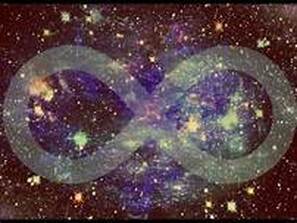Torah Reflections
Divrei Torah by Rabba Kaya Stern-Kaufman
 This week’s Torah portion, Va’era, begins as G-d speaks to Moses explaining how G-d will redeem the Israelites. It opens with the words, “G-d spoke to Moses and said to him, I am Yud-Heh-Vav-Heh. I appeared to Abraham, Isaac and Jacob as El Shaddai but I did not make myself known to them by my name Yud-Heh-Vav-Heh.(Ex. 6:2-4) G-d reveals that the ancestors knew G-d by one name, El Shaddai, which seems to allude to a different quality of their relationship. Now, G-d reveals a new name to Moses that speaks to a new way in which the Divine will be known in the world. Let us also recall that in last week’s Torah portion, Moses stands at the burning bush and asks the Divine Presence for a name to bring back to the Israelites. G-d responds saying, “my name shall be Ehyeh Asher Ehyeh (I will be which I will be) and this will be my name forever!” What is the meaning of these different names for G-d? Why are they changing? What do they reveal about the changing relationship with G-d and why is it necessary to reveal this to Moses at this time? Beginning with the name El Shaddai, the name known to our ancestors, midrash explains its meaning by parsing the word Shaddai into Sheh-dai meaning ‘that is enough.’ El Shaddai would then mean ‘the G-d who is enough.’ This is the G-d who meets the needs of the ancestors the way a mother nurses her child. In Hebrew the word for breast is shad, so we can also read El Shaddai as ‘G-d my breast.’ There is a midrash that states that when G-d created the world, the universe expanded until, at a certain point, G-d spoke the word dai meaning enough, and the expansion ceased. El Shaddai is the G-d known to the ancestors who were sustained with just enough, in a world that was limited by the boundaries fashioned by G-d. Once the Israelite family descended into Egypt where they were eventually enslaved, they no longer remained in relationship with El Shaddai. For them, there was not enough, there was no comforting breast or limit to their suffering. When Moses brings the news of the coming redemption, they cannot accept it for they are kotzer ruach/short of breath and crushed in spirit. They are so weakened that they cannot even imagine the possibility for change. It is for them specifically that G-d tells Moses to relate a new name. The new name is Ehyeh Asher Ehyeh/I Will Be That Which I Will be. In this name G-d communicates a new concept and a new relationship. G-d includes all possibilities of being. This is the G-d who is not locked into past patterns and forms. This is the G-d of all potentialities. But this name is not yet enough to impact the Israelites and gain their partnership in the process of redemption. In this portion G-d presents a new name- Yud-Heh- Vav-Heh- the name which includes all of time. It is a name that speaks of the Eternal, for in its root are the Hebrew words for was (hayah), is (hoveh) and will be (yihiyeh). This is a name that includes all potentialities of Being throughout all of time. Unlike the quality of Shaddai, this name reveals the transformative power of the One who will undo all limits, turn the natural world upside down, lift up the lowly, free the slaves and open the sea to dry land. This is the Master of All Transformations throughout time and space, the Maker of Miracles. This is the face of G-d that will become known to the Israelites, the Egyptians and all of humanity. When God announces G-d’s Self here as Y-H-V-H- the Eternal Potentiality of all that ever was, is and will be, God announces Divinity as the ground of All Being in Eternal Process. This is the face of God that makes all change possible, that makes redemption possible. And this quality of G-d is the transformative capacity implanted in each human being and in all of life. For all of life is transformation. This is so very hard for us to remember. We are impatient. We want change yesterday. We see suffering and injustice and we long for a peaceful world. Our greatest enemies are cynicism and despondency, which can also be called kotzer ruach/ crushed spirit. The Hasidic Masters teach us repeatedly that each human being contains a Divine root, a holy spark of Elohut- Godliness which is our capacity to change and build a transformed world. I am reminded of Dr. Martin Luther King Jr. whose birthday approaches. It is this transformational aspect of God that Martin Luther King understood as the root of humanity and he was willing to bet his life on it. He said, “I refuse to accept the view that mankind is so tragically bound to the starless midnight of racism and war that the bright daybreak of peace and brotherhood can never become a reality… I believe that unarmed truth and unconditional love will have the final word.” I was so deeply heartened yesterday by the images of our newly transformed House of Representatives. To see a chamber filled with women, people of color and Native Americans representing our diverse nation, brought tears to my eyes. YES! We have much work to do to realize the kind of world we want to see. This week and every day let us rejoice in the transformative face of G-d revealed to our ancestors and to us through the ever-unfolding process of a world becoming. As MLK once said, “the arc of the moral universe is long, but it bends toward justice.” |
Rabba Kaya Stern-KaufmanRabba Kaya served as Interim Rabbi of RJC from October 2017 through June 2019.
More about Rabba Kaya Archives
July 2019
|
OFFICE Hours
|
Telephone802-773-3455
|
Email ADDRESS |
